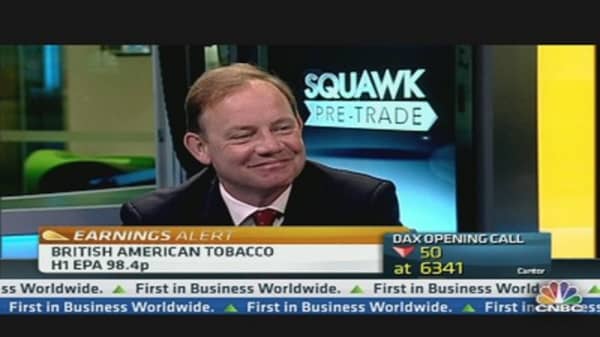Volatile equity markets are moving between despair and panic as they struggle to foster some positive sentiment from the increasingly gloomy macro-economic picture, Peter Toogood, Director of Investment at Old Broad Street Research told CNBC’s “Squawk Box Europe”.
As markets have struggled to deal with a raft of poor economic data from both the United States and Europe and the euro zone debt crisis limps on, Toogood warned that macro-economic uncertainty would be the main game.
“The market sits somewhere between panic and despair. People are worried, you’ve thrown everything you can at it and still there’s a slowdown and that will be the truth in austere times but we need to wake up to it,” he said.
He added that the deleveraging process is an unstoppable train and it is Europe's turn to face reality. The credit binge had to be paid for and the current policy was financial repression.
“A giddy mix of slow developed world growth and a meaningful cyclical slowdown in the emerging markets makes growth in the second half and therefore earnings vulnerable. The most visible sign of stress is the European crisis and this rumbles on. Markets will continue to riot to force the hand of the authorities,” Toogood said.
Spain has inched closer to the center of the debt crisis in recent days as it paid one of the highest yields on its short term bonds at an auction Tuesday as fears grow that it is closer than ever to needing a full sovereign bailout.
Last week the Spanish government said the country would remain in recession as its various autonomous regions look to Madrid to bail them out.
Questions are already being asked on where the money will come from given the struggle the government is having in accessing the capital markets.
Toogood said the yields at the 7 percent level were unsustainable and meant that Spain was “probably bust” and the debt issue remains unresolved which meant that "fear trade" would be here for longer.
Greece which lit the debt crisis touch paper two and a half years ago is also being seen increasingly as a lost cause as a visit by the three partners in the country’s bailout known as the troika – the EU, IMF and European Commission – said Tuesday that the country was unlikely to be able to pay its existing debt commitments and would require further debt restructuring.
Stewart Richardson, Partner at RGM Wealth Management told CNBC earlier that a Greek exit was still very likely.
“The likelihood is that Greece will exit the euroin the next year or so and the recession that started in the periphery will spread to the core. The cost to Germany of bailing out the rest of Europe is beginning to weigh on some investors’ minds,” he said.
Toogood added that the market would not let investors make any money but not to “run away” despite it being “rather scary”.




